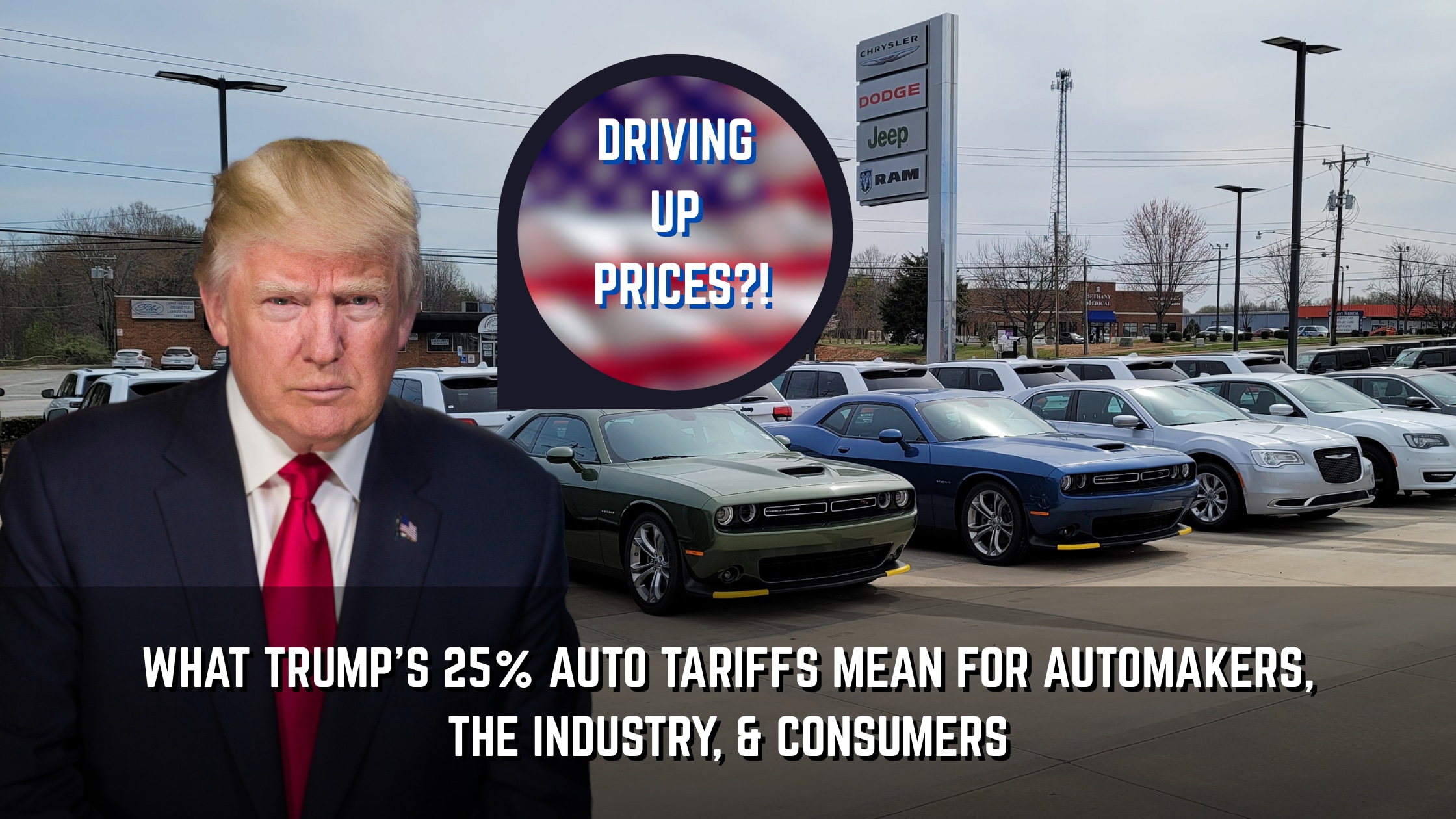Tariffs are a big conversation in today's political climate. This is leaving automakers and consumers with many concerns about the foreseeable future. Some are rushing to their local dealerships. Others are putting their next vehicle purchase on hold. That said, it's key to understand how these tariffs will affect you if you're looking to buy in the near future. Here are some frequently asked questions that may help you decide:

What Are Tariffs?
Tariffs are taxes that a government places on goods that are imported and exported. They do this for many reasons.
Common examples include:
-Raising revenue
-Protecting local industries
- Influencing trade agreements
- Responding to unfair trade practices
In short, tariffs are a "special tax" on goods that come in and out of a country.
A country's government will first establish a tariff rate for specific goods. Once these goods arrive, the importer then processes them by paying the tariff. The goods then go up for sale.
Why Does This Matter?
As of Wednesday, April 2nd, President Trump signed an executive order that will impose a 25% tariff on all foreign vehicles and auto parts. This affects over 50% of foreign automakers in the United States, but it doesn't stop there. These tariffs affect consumers who regularly shop for these foreign brands. Main examples being Ford, General Motors, and Stellantis.
How Will This Affect Automakers?
Foreign automakers will be forced to face a great deal of challenges moving forward. The first being increased production costs. As the price of expensive car parts and raw materials rises, so will the cost of production.
Most automotive manufacturers rely on the global supply chain to receive parts from other countries. This could lead to higher costs, lower demand, longer wait times, and potential shortages. Automakers will have to decide if they want to start making products in the United States.
But not all hope remains lost. Stellantis has already begun looking to explore options that could result in a $5 billion expansion into the United States.
How does this affect everyday consumers like you and me?
While the impact in its entirety is still unknown, there are a variety of ways in which these tariffs could affect consumers across the nation. Car pricing could increase. Maintenance and repair prices could go up. Inventory shortages could occur. Even inflationary pressure is possible.
However, if you own or are looking to purchase a motor vehicle in the United States, these tariffs could still impact you. That said, the long-term effects of these tariffs are still not entirely clear.
That being said, these are simply scenarios to be on the lookout for moving forward.
How can I prepare?
Preparing for the unknown can feel challenging. However, there are a few things that customers can do to minimize the impact of tariffs. Something you can do if you're buying a car is to do research on tariff-impacted brands. Some car brands are being affected more than others.
That said, always check the window sticker, as it does share where the vehicle was imported from.
As for car parts, the best thing customers can do is keep their vehicles well-maintained by scheduling service regularly. This keeps you out of the dealership and avoids unnecessary spending.
These are just a few things you can do to avoid the impact of the auto tariffs. That said, it's important to prepare as much as you can for upcoming uncertainty.
Check out our list on the four car-buying costs you've probably overlooked for more information on how to prepare for the unexpected.